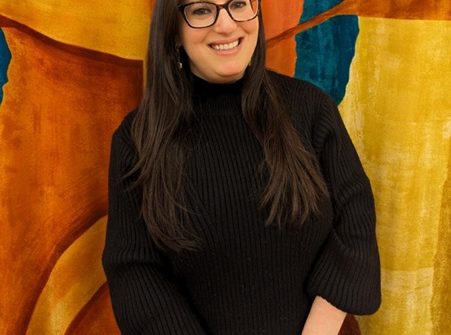A few weeks ago, I was walking with the family along a busy Jerusalem street, heading for the shuk, the market. In front of us, sitting on the pavement, where it seemed she might have been for some time, a woman was begging. As I noticed her a man who looked like he too could use a hand up in life, approached her, greeted her, and pressed a few coins into her hand. She thanked him profusely, calling him a tsaddik, a saint. He looked abashedly away, and then she, grinning, said ‘chaver, bevakashah, friend, please’ and she pressed the very same coins back into his hand, at which it was his opportunity to return the thanks. As I watched the scene unfold, I got the impression that this was a ritual they had performed before, perhaps regularly, and I recalled a Chassidic teaching, long forgotten, that they seemed to be re-enacting perfectly.
The story goes that everyone should be able to give tzedakah, no one should be denied the possibility of fulfilling the mitzvah, and so the poor of the village should give to one another, so as to be able to give without impoverishing themselves further.
It’s rare to see a Jewish teaching being quite so perfectly re-enacted. Tzedakah is one of the three T’s of this period – Teshuvah, return to God and ourselves, Tefillah, prayer, and Tzedakah. Usually translated as charity, it in fact shares a root with the word tzedek – justice. So tzedakah isn’t about giving money, it is about the continual pursuit of justice in our world. The first female Jewish American Supreme Court Justice, Ruth Bader Ginsburg, who died on the eve of Rosh Hashanah two years ago, was passionate about the Jewish ideals of justice, so much so that she had embroidered into one of her collars the words from Deuteronomy that we read just a few weeks ago: ‘Tzedek Tzedek Tirdof’ Justice, Justice shall you pursue.
Ruth Bader Ginsburg was one of 9 women who graduated Columbia Law school in 1959. She came joint first in her year, and although there were 8 other women in the class, there were 500 men. All of the graduating women struggled to find posts after graduating. She was famously asked why she thought she deserved to take the place of a man. It became clear to Ginsburg early on that hard work, perfect grades and excelling beyond her male classmates wouldn’t be enough. She would have to change the system so that it worked the same for everyone. And her life’s work really was committed to making that happen.
And perhaps that is the truest understanding of tzedakah. Giving to a food bank is a fantastic thing to do, and is a part of tzedakah, but demanding a change to a system that allows families to go hungry in a G8 nation – one of the wealthiest countries in the world, is also a part of tzedakah, of creating a just society.
Pursuing justice can be done in remarkable ways by incredible leaders like the late justice Bader Ginsburg. But it can also be done in a myriad small ways. By supporting, by listening, by seeing where change is possible in your own small part of the world, by raising others up to be whole in who they are, and giving human dignity and opportunity to all.
We don’t always get it right – just as Abraham so nearly gets it horribly horribly wrong in the Akedah, and Torah says there will always be hungry people amongst us. There will always be more to do, but as Rabbi Nachman of Batislav famously said ‘lo alechah hamlachah ligmor, lo alechah ligmor’ It is not your duty to complete the work, but neither can you refrain from it. This Rosh Hashanah we turn to Teshuvah, Tefillah, and Tzedakah, and commit ourselves to continuing the work of fighting for justice and giving in whatever ways we are personally able to.
Shanah tovah u’metukah!
(We closed by singing Lo Alechah together!)



